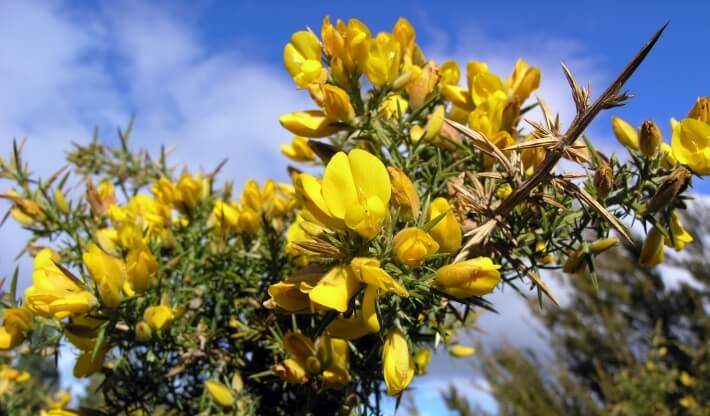Throughout a meandering two and a half thousand-year history, Buddhism has re-shaped itself, again and again. Its forms have evolved as the basic truths and methodologies of dharma have been applied to distinct societies and changing circumstances. The gilded baroque feudalism of Buddhism in Tibet; the austere aesthetic and lean existential comedy of Chan; the contrasting strands of formal Theravadin institutionalism and the shamanic aura of the forest renunciate; these all reveal the evolutionary vitality of a tradition that has enriched itself through creative engagement with cultural diversity.
The founding of the Ecodharma Centre in 2007 was an exploration of the forms Buddhism might take in response to the historical conditions we now live in. We see this as a period of social and ecological crisis. Tensions of social inequality, together with the irrationalities of a growth-based economy colliding with ecological limits, mark an unprecedented point of disruption.
Buddhism has re-shaped itself, again and again…Its forms …reveal the evolutionary vitality of a tradition that has enriched itself through creative engagement with cultural diversity.
Sensing, as Antonio Gramsci had in the 1930’s, that “the crisis consists precisely in the fact that the old is dying and the new cannot yet be born…,” we asked: How can the Dharma help us to live meaningfully amidst the dying of the old system – and how can it help us to midwife the new? Ecodharma is a response to these questions.
When we coined the term “ecodharma,” we wanted to imply something more than a form of Green Buddhism, simply folding environmental concern into the dharma life. We wanted Ecodharma to embody (as we expressed it in the centre’s strap line) an exploration of “Radical Ecology – Radical Dharma.”
With the idea of ‘radical dharma’ we point towards the heart of Buddhism. Practicing with a globalized perspective and historical awareness, it is possible to examine the many forms Buddhism has taken and ask questions about the core significance of these traditions. Recognizing that the dharma is not delimited by any of the cultural or philosophical forms it has taken, we can define it as any practices which enable people to develop and realize the potential of wisdom and compassion represented in the Buddhist ideal of enlightenment.
Radical dharma doesn’t assume that Buddhism has a monopoly on truth. Instead, it enables us to draw on diverse disciplines and fields of learning—both religious and secular, scientific and poetic—evaluating their relevance in terms of their capacity to liberate our potential for wisdom and compassion.
Radical dharma doesn’t assume that Buddhism has a monopoly on truth.
Our understanding of ‘radical ecology’ draws on intertwining strands in the ecology movement. From Deep Ecology we acknowledge the importance of cultivating an “ecological consciousness.” Through deep ecological and nature connection practices, we can learn to recognzse ourselves as part of the web of life and free ourselves from anthropocentric conceit. But such practices can stall in romanticism and narcissism, unless complemented by an understanding of the social relations of inequality and domination, such as class, gender and race. So, along with Social Ecologists and Ecofeminists, we apply a robust critique of social structures and the ways they intersect with exploitative relationships between humanity and nature. Consequently, we believe it is crucial to channel an ecological sensibility into concrete social and political action. And, along with many others, we see in ecological thinking the basis of a paradigm shift, the seeds of new ways of understanding the world in terms of relationships and systems.
The greatest gifts Buddhism offers are tried and tested methods for realizing the creative potential of consciousness. Through psychological integration, emotional literacy, and experience of the depth and richness of mind, we can discover resources and insights of immeasurable value. Much of our work at Ecodharma applies these dharma-based methodologies to support individuals to realize that potential. But a radical ecological approach, a truly holistic approach, also attends to the complex interplay of the psychological and personal with the cultural, socio-economic, and political dimensions of life.
…deep ecological and nature connection practices…can stall in romanticism and narcissism, unless complemented by an understanding of the social relations of inequality and domination, such as class, gender and race.
It’s a mistake to think of the development of consciousness as a personal matter. The cognitive complexity we enjoy is both an evolutionary and a cultural accomplishment. As the British thinker, John Gray says:
Human individuals are not natural data, such as pebbles or apples, but are artefacts of social life, cultural and historical achievements: they are, in short, exfoliations of the common life itself.[i]
With this perspective, it becomes conceited to think in terms of personal development alone. The well-being of society, the eco-sphere, and ourselves are interlinked. The interplay of radical ecology and dharma points to both a profound cognitive shift and significant social reconfiguration. Ecodharma points to the inseparability of transforming both self and the world.
Myles Horton[ii] founded the Highlander Education Centre, which played a key training role in the Labour and Civil Rights Movements. In a conversation with the radical educator Paulo Freire, Horton related observations he made during a time at Highlander when focus was placed on self-development, at the expense of the social and organizational development. Horton describes the time as a period “where people thought that consciousness was limited to their own conscious, something inside themselves. I guess some people thought it would start there and spread to society, but most of it kind of dead-ended there, as far as I could find out.” He says, “if it starts [on the inside] it stays there.”
…we believe it is crucial to channel an ecological sensibility into concrete social and political action. And, along with many others, we see in ecological thinking the basis of a paradigm shift, the seeds of new ways of understanding the world in terms of relationships and systems.
Getting stuck on the inside is a developmental dead-end which has become a serious risk for people adopting Buddhist practices today. Decades of neoliberal dogma have contributed to social atomization and increased individualism in many places. This neoliberal legacy compounds individualistic and uncritical application of Buddhist practice that emphasizes inner work and the transformation of personal consciousness. Such an approach can become a vicious cycle, entrenching an alienated sense of self and failing to honor our embeddedness in the social and ecological. In turn, an individualized approach to the dharma reproduces the socially dysfunctional and ecologically damaging tendencies of our times.
It was the genius of Mahayana Buddhism to eschew any sense of merely personal salvation. The Mahayana ideal of the Bodhisattva places uncompromising solidarity with all of life at the heart of spiritual practice – grounding it in action to support the flourishing and liberation of all. It’s a beautiful ideal that integrates compassionate identification with all beings with the wisdom that we are not ultimately separate from them.
Inspired by this vision, Ecodharma offers tools for radical personal transformation, rooted in an altruistic motivation that seeks concrete expression through social engagement. From this we’ve derived an approach to training that integrates the personal transformation with the ecological and political. The approach takes the form of three strands of training.
Firstly, nature connection and ecological learning which supports the emergence of ecological consciousness. These courses apply wilderness immersion and learning from natural living systems.
The Mahayana ideal of the Bodhisattva places uncompromising solidarity with all of life at the heart of spiritual practice – grounding it in action to support the flourishing and liberation of all.
Secondly, our Engaged Buddhist Trainings apply an explicitly Buddhist approach, to empower people and groups to effectively respond to the social and ecological challenges of our times. We support people to draw on the nourishment that meditation can offer—resourcing emotional resilience. The clarity, cognitive vitality, and insights from such practices help people to keep their analysis and strategizing fresh and creative. And ethical training provides a crucial basis for effective and sustained collaboration.
The third strand draws on the learning we’ve gained from our Engaged Buddhist Training, but reframes it in secular language to support a wide range of activist work. It is this third strand that forms the basis of the Ulex Project, our latest initiative.
We took the name from the Latin for the plant known in English as gorse. Ulex is a thorny-evergreen flowering plant, well known from the northern coast of Scotland to the edges of the Mediterranean Sea. It grows well under challenging conditions and is an excellent successionary plant—a species that contributes to the healing of land that has been damaged, preparing the way for returning health and biodiversity.
We see the work of the Ulex Project as analogous to this. Through trainings for activists, change makers, and organizations, we seek to enrich the conditions that enable social movements to thrive. We’ve carried over the ecological and holistic approach from Ecodharma to develop trainings that help build capacity for social justice and ecological integrity at the level of the individual, the group, and society.
Buddhism today takes many forms. Ecodharma is one attempt to stay true to the radically transformative potential the dharma offers. And whilst aspects of it may not look like Buddhism, we think it is more radically dharmic for that. Our work supports people to understand themselves as inter-connected—and it offers the skills needed to express that understanding through action in solidarity with life.
[i] John Gray, Gray’s Anatomy p325
[ii] We Make the Road by Walking, Conversations on Education and Social Change, Myles Horton and Paulo Freire, 1990.







